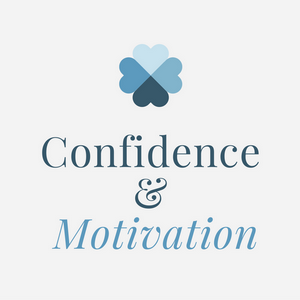The Tremendous Power of Clarity
Whatever you're trying to accomplish, clarity is paramount. Being consistent and staying on track is largely a result of being unambiguous about your life and purpose. Fortunately, getting clarity in your life is easy with a little daily effort.
Having clear goals is critical. Your brain is much more capable of finding solutions if the objective is obvious. You'll also stay on track more easily if the end result is clear to you. If you don't have a specific endpoint in mind, you could end up anywhere. And even if you do land in the right place by sheer luck, how would you know you were there?
Everyone knows that goals are critical, but few people have them. Largely, this is because you can go from kindergarten through college and never be taught an effective goal-setting process. Those who know what they want typically enormously outperform those who don't.
Another issue with setting goals is the fear of making a mistake. But the truth is that doing the wrong thing is almost always better than doing nothing. At least if you choose the wrong path, you end up with something. You can always do something else. If you do nothing, you end up with nothing.
As Teddy Roosevelt put it, "In any moment of decision, the best thing you can do is the right thing, the next best thing is the wrong thing, and the worst thing you can do is nothing."
Many people confuse having a direction with having a goal. For example:
* "I want to make more money" is not a goal. "I want to make an extra $50,000 in the next 365 days" is.
* East is a direction. The tip of the Empire State Building is a specific destination.
So how can you be sure you're setting effective goals?
1. Goals should have a yes/no quality to them. If someone asked you if you'd reached your goal, you should always be able to answer 'yes' or 'no' without any doubt. That means that your goals have to be measurable and specific.
* A good goal would be, "I want to earn $10,000 by April 1, 2018." The amount is specific, and there is a deadline. It is also measurable.
2. Write down your intention. There's a magical experience around writing something down. We think thousands of different things every day - so many things, in fact, that stuff tends to get lost. Writing your goal provides some separation from all the other things you have going on. It provides relevance.
* Writing your goals also gives you other options that mere daydreaming does not. You can actually read your goal aloud. Thinking is good, but thinking and reading is better. Better still is thinking, reading, and writing. Read and write your goal every day. This practice helps to reinforce and solidify your intentions.
Clarity really is a choice. The default condition is to live your life without clarity, to simply wake up and see what the day brings. To have clarity means that, to a large extent, you've already decided what you're going to do that day. When you know where you want to end up, you'll easily figure out which direction to go.
Another potential roadblock is to avoid making a choice because you want to keep your options open. But what's the real result of this decision? If you always keep your options open, you'll never choose any direction in your life. You'll merely be part of everyone else's goals.
Clarity is critical to living your life on purpose, and it requires a daily decision. Implement the ideas above and see how much clarity you can get. With each day, you'll get closer to the life of your dreams.
To your success
Michael W

